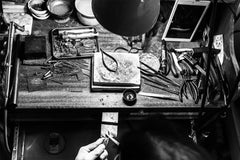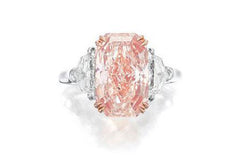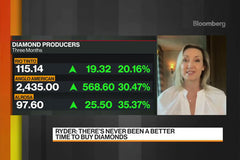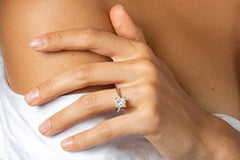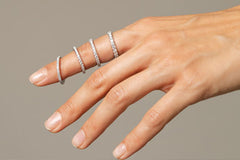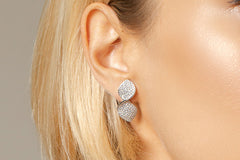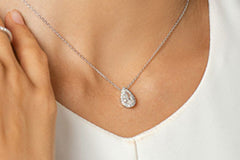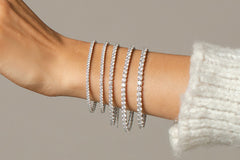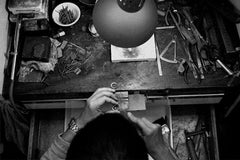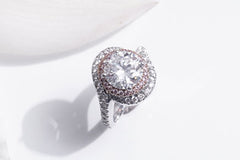3 reasons why you shouldn't buy a Lab-Grown diamond engagement ring
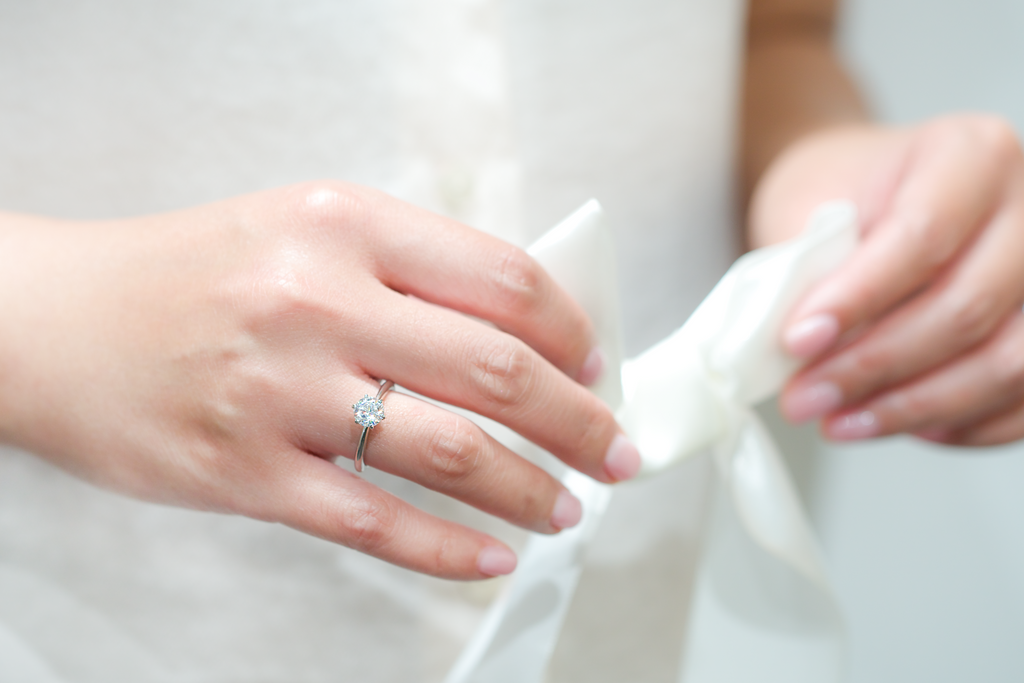
Men, why are you even doing this? Why are you considering buying a diamond to propose to your girlfriend? First, I want to give you insight into why people have been doing this for a long time and what it will mean to her.
Giving someone something of value when getting married is an age-old tradition and nothing new. A dowry is an ancient practice and practically as old as civilisation itself. I'm not kidding! The rules regarding dowries can be found in the Code of Hammurabi, one of the oldest written legal codes.
Dowries are things of value (money, material goods, real estate) that a bride's family gifts to a groom when the two are wed. The size of the dowry usually depends on the family's social status. When Eleanor of Aquitaine married King Louis VII he got…well, all of Aquitaine! The dowry essentially serves the purpose of cementing the relationship as they're usually conditional (give up the girl, means giving up the money too). Some of the implications are kind of gross, but anyways, it's been happening forever and a day because it solidifies a commitment.
In western culture, dowries are mostly a thing of the past, but is the concept? In the old days, the opposite of a dowry was a "bride price", or, as you might have guessed, the money a groom would pay to the bride to secure her hand in marriage.
Giving up something of value proves your commitment. You are putting your money where your mouth is per se. Diamonds are not logical. Think about it. A young man spends more money on a rock than he has probably ever spent on anything before and then gives it away. It has no function other than to say, "I love you, and I want you to be my wife". It's the purest symbol of love there is.
Diamonds do more than show love for a woman. There is another thing it does that is equally important to many women. It shows security. You see, anywhere in the world you might go, a diamond has value.
When a man gives his true love a diamond, he promises her stability, dependability and, most importantly, security. By giving her a diamond, he is saying that the world is big and crazy and dangerous, but I will be here for you. I will be YOUR rock.
Many men don't realise how important security is to a woman. Men don't think about taking the "scenic route", so they don't have to walk past a group of women and risk being harassed or scurrying back to their car alone in the dark with the fear of being jumped. Having a man by a woman's side makes her feel protected. That diamond on the finger tells the world she has a man in her life. Call me old-fashioned, but it's human and biological instinct.
When a man buys a natural diamond, he can be reassured that he is also buying himself a bit of security. Anywhere in the world he might go; a diamond has value. Stock markets and housing have fluctuated over the decades, but gold and diamonds have always had real tangible value. They are a secure purchase that lasts for generations. Since 1934 diamond prices have increased more than inflation. They are the most concentrated form of wealth and have international demand, and unlike a car or a house, they do not wear over time. You might argue, "but they're hard to sell", well diamondmarketplace.com is taking care of that little chestnut!
Remember how the dowry's size depended on the couple's social status? Let's now consider how the "cost of the diamond" relates to the man's social status—the ugly truth. Let's go there!
If a wealthy man was to spend little on the diamond he buys for his bride-to-be, he may be viewed as tight and not very committed. If a poor man spends a lot on a diamond, he may be viewed as genuinely loving this woman and willing to sacrifice everything he has for her. Let's be honest; we buy expensive diamonds because of the sacrifice they stand for. The higher the value, the more perceived importance it has and the greater the feeling of security it gives a woman.
Reason #1 why you shouldn't buy a lab-grown diamond.
They are losing value rapidly.
When the technology was new, and lab-grown diamonds came onto the market, they were expensive!! They're now everywhere, and the cost is a fraction of what they were just a few years ago. In the past few years, the technology has been improving, the price to make them is dropping dramatically, and the competition is now stiff. According to a recent Bain & Co report, it today costs about $300 to $500 per carat to produce a single lab-grown diamond, compared with $4,000 per carat in 2008.
In 2 years, they'll be a fraction of the cost they are today. I'll put my money on it (well not on buying a lab-grown, but on the bet!).
On the other hand, natural diamonds have appreciated in cost by about 20% since the start of covid in early 2020 - you can't say that about many other tradable assets.
 source: https://www.bain.com/insights/global-diamond-industry-2020-21/#
source: https://www.bain.com/insights/global-diamond-industry-2020-21/#
Reason #2 why you shouldn't buy a lab-grown diamond.
The perception of lab-grown diamonds will change in the future.
People often ask me if I think lab-grown diamonds threaten the natural diamond market. They're more of a threat to the moissanite market than natural diamonds! You might have looked good when you spent a big chunk of dollars on your lab-grown diamond years ago, but are you still going to be looking good when it's worth not much more than a fake diamond, like moissanite?
The perception of lab-grown diamonds when they become cheap will be very different from how we look at them now, while they're still relatively expensive.
Imagine spending US$10,000 on your lab-grown diamond today, and in a few years, you can buy the same thing for $500. Is the way you look at the diamond going to be the same as if it were natural (which would probably only have increased in price)? I don't think so.
When the value of the lab-grown diamond becomes worthless, will she treasure it the same way she would if it was valuable and expensive? Probably not.
Lab-grown diamonds will have their place in fashion jewellery but not in the luxury market. They'll be thought of more as the "cheap" costume jewellery type alternative to natural rather than the "sustainable" alternative they're being marketed as today.
Reason #3 why you shouldn't buy a lab-grown diamond.
It's not very romantic.
Natural diamonds are a gift from nature that formed billions (yes, Billions! That's not a typo!) years ago. They are expensive because they are rare.
The gift of something rare and expensive makes the owners feel proud and makes them treasured. Natural diamonds will retain their value due to scarcity. In the past 30 years, there have been no significant discoveries of natural diamond deposits.
DeBeers created the famous slogan "a diamond is forever", and isn't it romantic that this natural diamond will last forever and be valuable permanently?
On the other hand, lab-grown diamonds are created through an artificial process over a few weeks that requires tons of energy. They're less environmentally friendly than you might have hoped if you consider buying a lab-grown diamond for environmental reasons. (If you're looking for a more sustainable purchase - go check out www.diamondmarketplace.com for a recycled natural diamond - where you'll get both value and sustainability).
A lab-grown diamond might look like a natural diamond, but so do cubic zirconia and moissanite. The perceived value will change as they get cheaper and will be similar to the other fake alternatives.
My conclusion is, don't buy a lab-grown diamond for your engagement ring. They might be fun in the future for cheaper, less important jewellery gifts, but not for this once-in-a-lifetime (let's hope) purchase and special occasion in your life. Be smart; buy natural.

